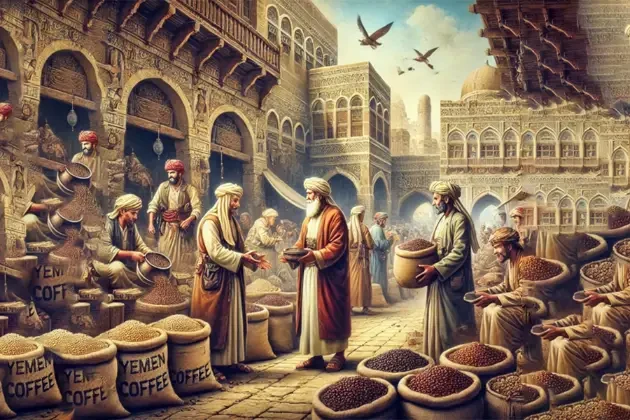Reset your password
In the heart of Yemen, a man named "Abuo Hamdan" was born. He had many stories and secrets in his bag, but what distinguished this man most was his deep love for Yemeni coffee, which has always been a symbol of generosity and authenticity in his country. Abuo Hamdan dreamed of bringing this famous coffee to Egypt so that crowds would gather around cups of coffee in the councils.
"Abuo Hamdan" carried in his heart a promise to Yemen and his ancestors to tell their stories through these small beans that carry in every sip the fragrance of the past and the stories of the ancestors.
Will Abuo Hamdan succeed in making Yemeni coffee a part of the Egyptian heritage, or will this journey be full of surprises? This is what we will discover in the story of the man who brought the fragrance of Yemen to the land of Egypt






